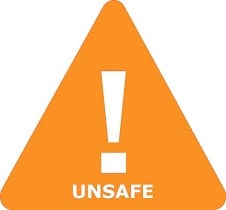Is Kelp-Seaweed Safe in Breastfeeding
Question
I am a breastfeeding mother and i want to know if it is safe to use Kelp-Seaweed? Is Kelp-Seaweed safe for nursing mother and child? Does Kelp-Seaweed extracts into breast milk? Does Kelp-Seaweed has any long term or short term side effects on infants? Can Kelp-Seaweed influence milk supply or can Kelp-Seaweed decrease milk supply in lactating mothers?
Kelp-Seaweed lactation summary

- DrLact safety Score for Kelp-Seaweed is 5 out of 8 which is considered Unsafe as per our analyses.
- A safety Score of 5 indicates that usage of Kelp-Seaweed may cause serious side effects in breastfed baby.
- Our study of different scientific research indicates that Kelp-Seaweed may cause moderate to high side effects or may affect milk supply in lactating mother.
- Our suggestion is to use safer alternate options rather than using Kelp-Seaweed .
- It is recommended to evaluate the advantage of not breastfeeding while using Kelp-Seaweed Vs not using Kelp-Seaweed And continue breastfeeding.
- While using Kelp-Seaweed Its must to monitor child for possible reactions. It is also important to understand that side effects vary largely based on age of breastfed child and time of medication in addition to dosage.
- Score calculated using the DrLact safety Version 1.2 model, this score ranges from 0 to 8 and measures overall safety of drug in lactation. Scores are primarily calculated using publicly available case studies, research papers, other scientific journals and publically available data.
Answer by Dr. Ru: About Kelp-Seaweed usage in lactation
Seaweeds contain large amounts of mucilage and minerals, including iodine which appears in variable amounts that can be significant, in such a way that it may be a cause a hyperthyroidism-like disease (anxiety, insomnia, tachycardia, palpitations).It may also contain heavy metals, being a species of seaweed with a high ability of contamination by toxic products. Seaweed consumption increases levels of iodine in plasma and breast milk.There have been reports of hypothyroidism in infants whose mothers have included in their diet important quantities of seaweed. There is no evidence of effectiveness on increasing milk production. The most effective method to increase milk production should be done by strengthening maternal self-confidence, evaluate and correct problems along with an effective support to breastfeeding mothers. It is recommended to obtain information on the composition of any particular algae and avoid it or use it in very moderate amount in case of iodine content would be important.
Alternate Drugs for Diets, foods, nutrients and food supplements. ATC V06
Cannabis(Low Risk)
Lecithin(Safe)
Garlic(Safe)
Resveratrol(Safe)
Hypo-Caloric Diet(Safe)
Adenosine-Monophosphate(Safe)
Adenosine-Triphosphate(Safe)
Artichoke(Safe)
Amaranth(Safe)
Maple(Safe)
Preoperative Fasting(Safe)
Coffee(Low Risk)
Shark Cartilage(Safe)
Onion(Safe)
Chitosan(Safe)
Flavonoid(Safe)
Vegetarian Diets(Low Risk)
Wheat Germ(Safe)
Glycophosphopeptical(Safe)
Goji Berries(Low Risk)
Royal Jelly(Safe)
Kefir(Safe)
Kombucha(Unsafe)
Brewer´s Yeast(Safe)
Strawberry Tree(Low Risk)
Mate(Safe)
Propolis(Low Risk)
Quinoa(Safe)
Rampion Bellflower(Safe)
Silanol(Low Risk)
Tea(Low Risk)
Theobromine(Safe)
Grapevine(Safe)
Airborne(Unsafe)
Probiotics(Safe)
Chia(Safe)
Hemp(Low Risk)
Jujube(Safe)
Brazil Nut(Low Risk)
Cannabis sativa(Low Risk)
Hashish(Low Risk)
Marihuana(Low Risk)
Marijuana(Low Risk)
Poliglusam(Safe)
Bee glue(Low Risk)
Jamaica Sorrel(Safe)
